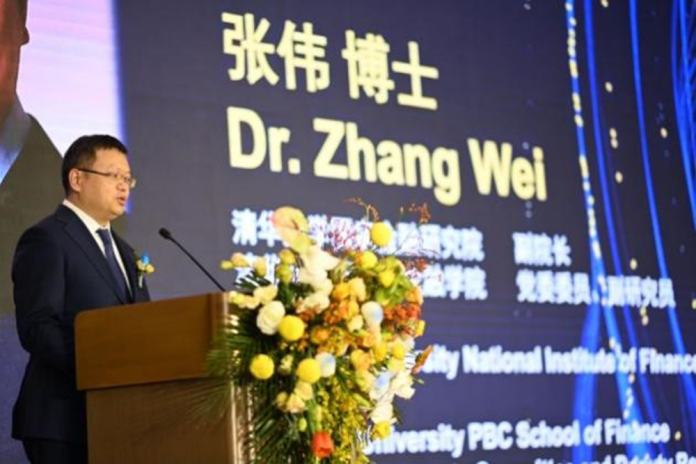“Since 2018, the economic gap between developed and developing countries has gradually narrowed. A new round of technological revolution is driving earth-shaking changes in the economic system. For instance, data has become a key factor of production, but what is the difference between data and capital and labor?” Dr. Zhang Wei, Vice President, Tsinghua University National Institute of Finance, raised a thought-provoking question in his keynote speech at the CIFTIS-Never-End Series China Australia Business Forum held on January 10.
“Data is not a physical object, which could be subject to property rights laws. Therefore, increasing industry insider are vigorously promoting the capitalization of data. Currently, both the world and China are in the midst of unprecedented changes, in which the basic logic is brought about by technological changes such as big data,” Zhang gave an example, “The skyrocket of e-commerce in China has led to depression in the real economy, such as shopping malls. Beyond doubt, innovation will inevitably bring restructuring and disruption.”
In Zhang’s view, China’s development, both in 2024 and in the long term, is inseparable from three trends- marketization, globalization and most crucial, digitalization.
“Completely agree with Dr. Zhang’s viewpoint. All major economies have formulated digital strategies by now, and the digital economy accounts for 40-50% of the GDP. For China, the digital economy accounts for a higher proportion. Digital transformation means more innovative models, bringing value multiplier effect,” Jason Zhang, Partner of Deloitte China introduced.
“Since 2014, the scale of China’s digital economy has shown a mushroom growth. Digital innovative technologies are emerging in endlessly, and the integration of blockchain, cloud computing, big data, Internet of Things, artificial intelligence, etc. with various industries is increasingly deepening,” Jason Zhang added.

New trends mean new challenges. Jason Zhang emphasized that the digital era has brought many challenges to enterprises in China and around the world, which urgently need to be solved through digital transformation. “Insufficient digital awareness, difficulties in digital strategy management and control, weak digital competitive advantages, and imperfect digital governance mechanisms need to be overcome by enterprises one by one. Anyhow, I bet that Chinese enterprises will advance bravely in the tide of the times.”
“In the past ten years, the Belt and Road Initiative has driven nearly one trillion U.S. dollars in investment, created more than 420,000 jobs for countries along the route, and lifted nearly 40 million people out of poverty. According to World Bank predictions, by 2030, international cooperation under the BRI will enable trade among participating countries increased by 2.8% to 9.7%, global trade increased by 1.7% to 6.2%, and global income increased by 0.7% to 2.9%.” Luke Lu, Partner of KPMG China indicated at his keynote New Trends, Opportunities, and Challenges for Chinese Companies Investing along the Belt and Road. “And the digital BRI must the unshakable biggest growth point in the future. China is vigorously promoting the ‘go global’ of high-tech industries, and international cooperation industrial parks are transforming from industrial and logistics parks to virtual, digital and smart parks.”
The digital BRI will promote the further rapid development of new cross-border e-commerce formats, Luke Lu introduced. Currently, there are more than 100,000 cross-border e-commerce entities in China, more than 200,000 independent stations have been built, and there are about 690 cross-border e-commerce industrial parks in comprehensive pilot zones. China’s cross-border e-commerce trading partners are spread all over the world, signing bilateral e-commerce cooperation memorandums with 29 countries. “A world embracing digitalization means challenge, but also gift to China. What is engraved on the modern Silk Road is not the footsteps of camels but the torrent of data.”


